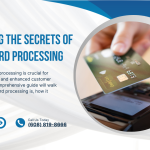How to Choose the Best Card Processing System for Your Business
Choosing the right card processing system is a vital decision for any business that accepts payments. Whether you run a small brick-and-mortar store or an expansive eCommerce platform, a reliable payment system is essential to ensuring smooth transactions and providing a positive customer experience. With the right card processing system, your business can streamline payments, reduce errors, and offer a wider range of payment options to customers. However, with so many different solutions available, selecting the best one for your business can be challenging. This guide will walk you through the most important factors to consider so you can make the best choice for your business.
Understand Your Business Needs
Before diving into the options for card processing systems, it’s essential to thoroughly understand your business’s specific needs. Consider factors such as the size of your business, the types of payments you process (e.g., credit cards, debit cards, digital wallets), and whether you primarily operate in a physical location, online, or both. Knowing these details helps you choose a solution that can handle the transaction volume and payment types you require.
Ask yourself the following questions:
- Does your business need to process payments both in-store and online?
- Are you looking for a system that handles recurring payments or subscription-based models?
- How many transactions do you handle daily, weekly, or monthly?
- What level of customer support and service does your business need?
Understanding your business’s specific needs will narrow down the search and prevent you from choosing a system that’s too complex or not robust enough for your operations.
Key Features to Look for in a Card Processing System
There are several key features to consider when choosing a card processing system. These features ensure that you not only handle payments efficiently but also maintain high security and an intuitive user experience for both your customers and your employees. Here are some features you should prioritize:
1. Security and PCI Compliance
Security is a top priority when it comes to card transactions. Ensure that the system you choose complies with the Payment Card Industry Data Security Standard (PCI DSS). This protects sensitive cardholder information and reduces the risk of data breaches. Look for a system that offers encryption and tokenization to safeguard customer data during transactions.
2. Transaction Fees
Each card processing provider charges different fees for transactions. These fees may be a flat rate per transaction or a percentage of the sale. Consider what fee structure makes sense for your business volume. Smaller businesses with fewer transactions might prefer a system with low fixed fees, while larger businesses might benefit from percentage-based fees.
3. Ease of Use
A user-friendly interface is important for both your employees and customers. The system should make it easy for employees to process transactions and handle refunds or exchanges. For customers, ensure that the payment process is quick, straightforward, and hassle-free.
4. Integration with Your POS or Accounting Software
Your card processing system should integrate seamlessly with your existing Point of Sale (POS) or accounting software. This minimizes manual entry, reduces the likelihood of errors, and streamlines your bookkeeping process. Look for systems that offer integration with popular platforms like QuickBooks, Shopify, or Square.
5. Customer Support
Issues can arise with any technology, and when it comes to payment processing, you want prompt and reliable support to minimize disruptions. Choose a provider that offers 24/7 customer support, preferably with multiple channels like phone, email, or chat.
Types of Card Processing Systems

Depending on your business model and the types of transactions you handle, different types of card processing systems might be more suitable. Here are the most common options:
1. Point of Sale (POS) Systems
POS systems are ideal for retail businesses or restaurants that handle in-person transactions. They typically include both hardware (card readers, terminals) and software to manage payments and inventory. Modern POS systems also offer features like customer relationship management (CRM), which can help improve customer retention.
2. Mobile Payment Processors
Mobile payment systems are perfect for businesses that need flexibility, such as food trucks, market vendors, or service-based companies. These systems allow you to process payments on-the-go via smartphones or tablets using mobile card readers.
3. Online Payment Gateways
For eCommerce businesses, online payment gateways are crucial for handling secure credit card transactions. Look for a gateway that supports multiple payment methods, including credit cards, digital wallets, and ACH transfers, to offer your customers flexibility.
4. Integrated Payment Systems
Integrated systems combine both in-store and online payment processing, making them ideal for businesses that operate across multiple sales channels. These systems help ensure consistency in reporting and transaction management, whether the sale occurs online or in person.
Read it also: – DEMYSTIFYING MOBILE CREDIT CARD PROCESSING: COMMON MYTHS AND ESSENTIAL INSIGHTS FOR BUSINESSES
Costs Associated with Card Processing
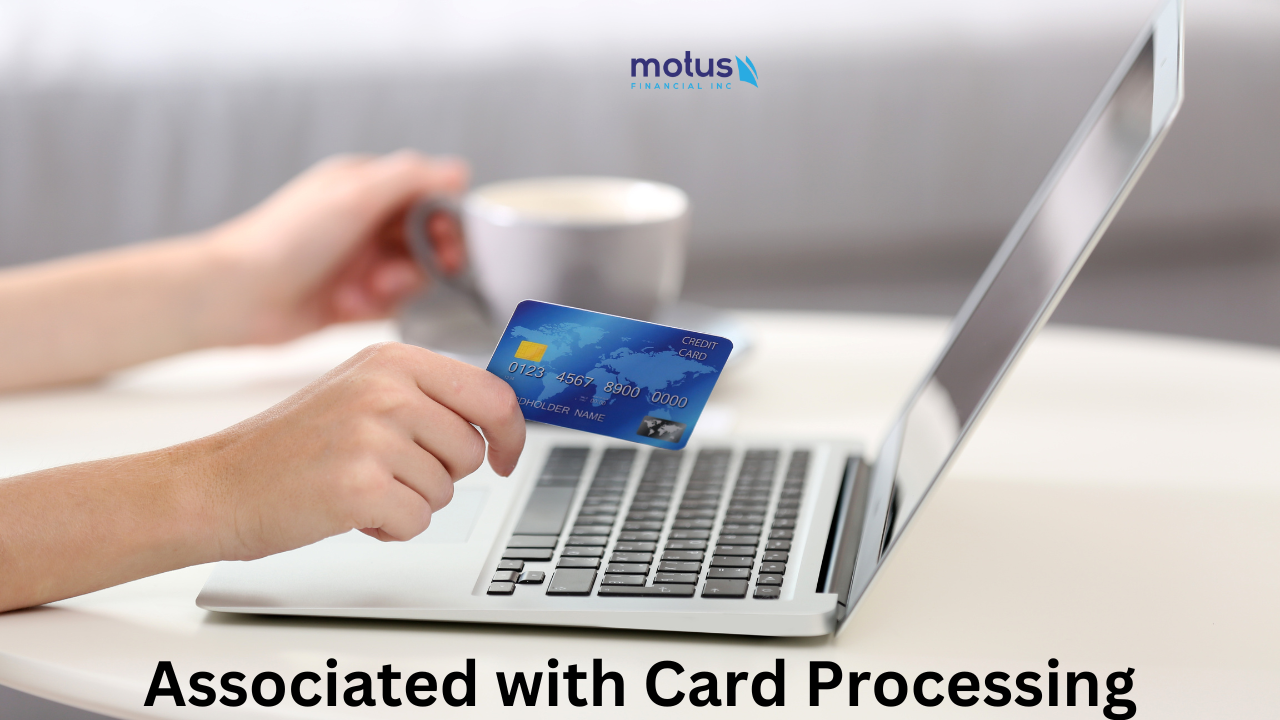
When selecting a card processing system, it’s important to understand the various costs associated with it. These costs can vary significantly depending on the provider and the type of system you choose. Some of the most common costs include:
- Setup Fees: Some card processing providers charge an initial setup fee, which can vary depending on the complexity of the system.
- Transaction Fees: Most card processors take a percentage of each sale, often combined with a small fixed fee. Be sure to compare these fees across providers.
- Monthly Maintenance Fees: Some providers charge ongoing monthly fees for the use of their software or hardware, even if you don’t process any transactions.
- Additional Fees: Watch out for hidden fees such as chargeback fees, PCI compliance fees, or early termination fees.
Understanding the full cost structure will help you choose a system that fits within your budget and avoids unnecessary expenses.
Why Choose Motus Financial for Your Card Processing Needs
At Motus Financial, we specialize in providing customized card processing solutions that are tailored to fit the unique needs of your business. Whether you run a small retail shop or a large-scale eCommerce operation, we offer secure, efficient, and affordable payment processing services that help you streamline your transactions and improve customer satisfaction.
With Motus Financial, you’ll benefit from:
- Competitive transaction fees that help you save money
- PCI-compliant systems that ensure the security of your customers’ data
- Seamless integration with your existing software and systems
- 24/7 customer support to help you with any issues that may arise
We are committed to delivering top-notch service and making sure your business has the best card processing system in place to succeed.
Contact Us Today
Ready to upgrade your card processing system? Contact Motus Financial today to find the perfect solution for your business. Call us at (608) 819-8666 or visit our website to learn more. Let us help you make payment processing easy, secure, and cost-effective.
Google My Business (GMB) allows card processing providers like Motus Financial to increase visibility and credibility by showcasing essential information such as location, services, and customer reviews. An optimized GMB profile ensures that potential clients can easily find your business, contact you, and see customer feedback, which can greatly influence their decision to choose your card processing services. It’s a simple but powerful tool to boost your business’s reputation and attract more clients.





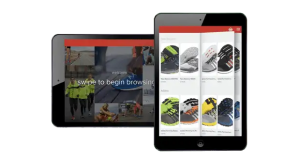
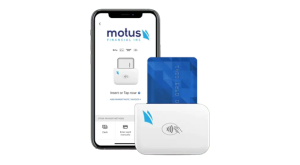
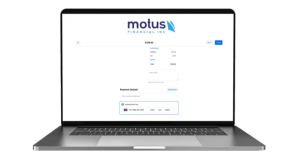
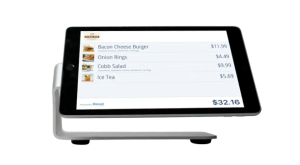 Our POS systems are designed to streamline in-store transactions. With features like inventory management, sales reporting, and customer tracking, our POS solutions help you run your business more efficiently. Our terminals are compatible with various payment methods, including chip cards, contactless payments, and mobile wallets.
Our POS systems are designed to streamline in-store transactions. With features like inventory management, sales reporting, and customer tracking, our POS solutions help you run your business more efficiently. Our terminals are compatible with various payment methods, including chip cards, contactless payments, and mobile wallets.
